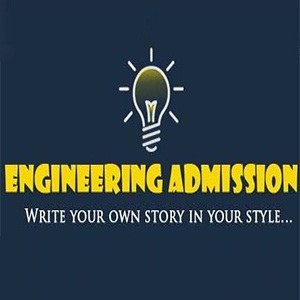Engineering Admission Process 2019
 Since Engineering has always been a popular stream to pursue, and every bright student, after higher secondary wants to be an engineer, every year, thousands of candidates compete to reserve the best seats under this domain. Engineering course has various fields, which includes civil, IT, CSE, mechanical, mining, automobile, petroleum, etc., and there are lots of job opportunities in the market waiting for you when you have completed your program. As once, Albert Einstein rightly quoted, “Scientists investigate that which already is; Engineers create that which has never been”. Rather than just sitting and thinking, Engineers make things happen. A budding engineer can end up being an asset to the society, by exhibiting their creativity, decision-making skills, and their college-level knowledge. India is home to some of the top-notch engineering institutes across its 29 States and 7 Union Territories. Below is the engineering admission process for 2019.
Since Engineering has always been a popular stream to pursue, and every bright student, after higher secondary wants to be an engineer, every year, thousands of candidates compete to reserve the best seats under this domain. Engineering course has various fields, which includes civil, IT, CSE, mechanical, mining, automobile, petroleum, etc., and there are lots of job opportunities in the market waiting for you when you have completed your program. As once, Albert Einstein rightly quoted, “Scientists investigate that which already is; Engineers create that which has never been”. Rather than just sitting and thinking, Engineers make things happen. A budding engineer can end up being an asset to the society, by exhibiting their creativity, decision-making skills, and their college-level knowledge. India is home to some of the top-notch engineering institutes across its 29 States and 7 Union Territories. Below is the engineering admission process for 2019.
To get admission in engineering, Candidates should have qualified 10+2 from a recognized board with Physics and Mathematics as compulsory subjects, and Chemistry/Computer Science/Biotechnology/ Biology as optional subject, or Candidates must have passed Diploma in Engineering and Technology, and secured a minimum of 50 % aggregate marks (for General category) and at least 45% aggregate marks (for others). B. Tech Admission process begins in the month of March/April. Admission process in IITs, NITs, and IIITs is different from UG engineering admission process in private engineering colleges. Similarly, the B.Tech admission process in one state varies from another state. You can shortlist the engineering entrance exams that you have to appear for and can keep a track of its entrance. Each entrance exam has been divided according to undergraduate level, post-graduation level, university level, and state level.
Acceptance of Engineering Entrance Exam Score:
Between various engineering colleges in India, the major difference one can find with regard to B.Tech admission process is acceptance of entrance test score. Not all the engineering colleges in India accept the score of a single engineering entrance exam for B.Tech admissions. The acceptance of entrance test score varies from college to college and state to state. JEE Main is the widely acceptable entrance test, and most of the engineering colleges in India accept JEE Mains score for B.Tech admissions. Apart from JEE Main, state-level engineering entrance exams are also popular among students. However, state-level engineering entrance exams are limited to a specific state. In some states, both national-level and state-level engineering entrance test is acceptable for B.Tech admissions. JEE Main is considered to be one of the toughest engineering entrances. It was initially conducted as “Common Entrance Test” for admission to only IIT, Kharagpur in 1960s. Later on, it was changed into centralized entrance exam for admission to all the prestigious 23 IITs.
Direct and centralized admission without Entrance:
In most private engineering colleges, there is a chance for getting direct admission without an entrance test score. Such admissions are treated as management quota admissions, and the B.Tech fees collected for management quota admissions are higher than entrance-based admissions. In some states, there is no entrance exam for B.Tech courses, and the admission is purely based on Class 12 merit. In such states, the centralized admission process is conducted for UG engineering admissions.
If you are not able to get into any of the government colleges, to pursue your desired engineering course, then you can get admission in good private engineering colleges in India, with a valid national-level or state-level entrance test score.

